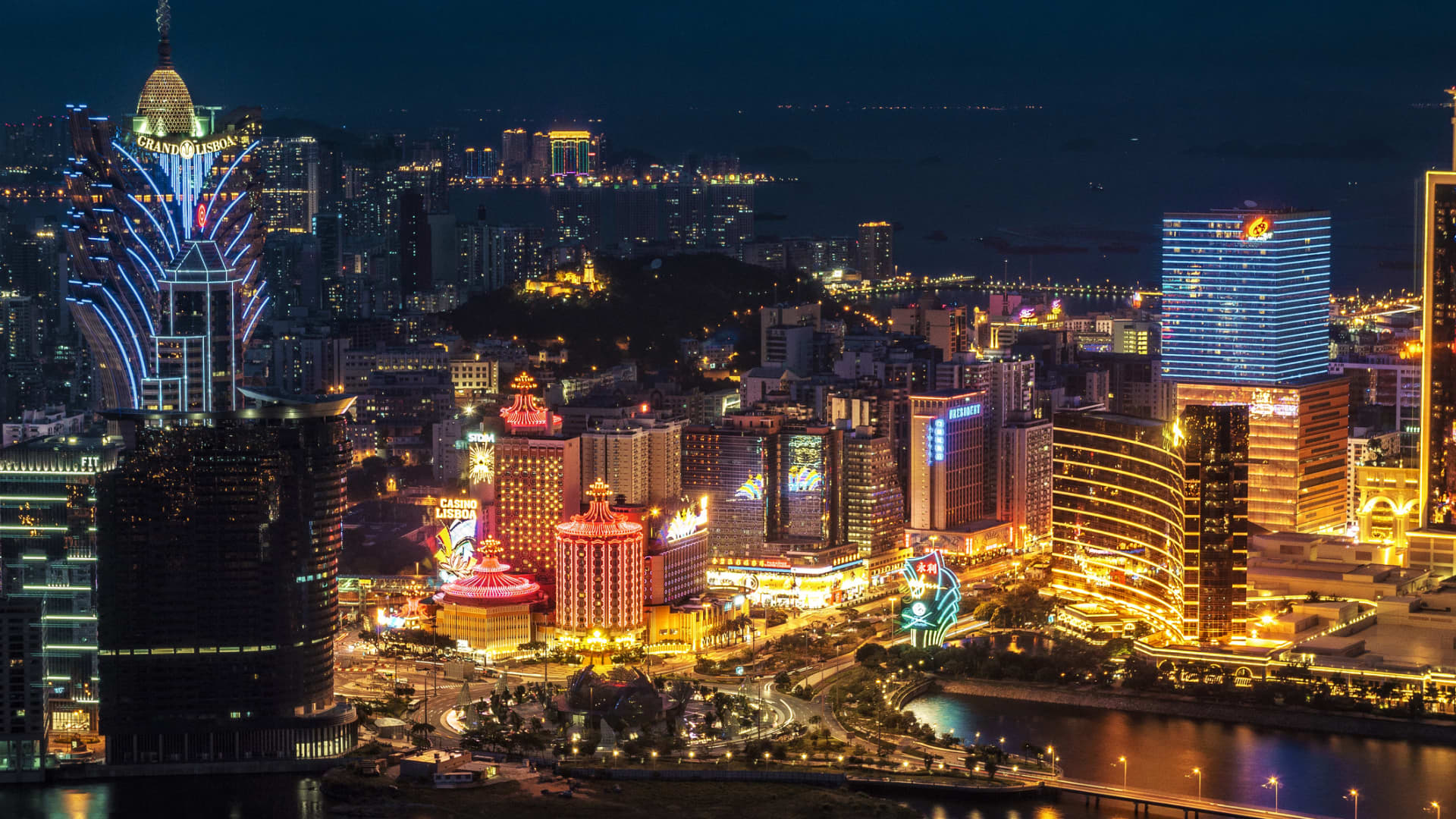With mandatory quarantines easing, ferry and airline service resuming, and licenses renewed, casinos hope 2023 marks a new beginning for the world’s preeminent gambling destination, Macao.
The Macao government awarded six companies new 10-year concessions to operate their integrated casino resorts. A concession essentially is an operating agreement with the government, which in turn, licenses the operators.
To win the permission, the casino companies agreed to invest collectively nearly $15 billion dollars in Macao to achieve government goals of diversifying the local economy beyond gambling and encouraging international tourism.
CNBC has also learned MGM will benefit from the allotment of 200 more gaming tables, though the award comes at the expense of competitors including Wynn’s properties, according to multiple sources.
Las Vegas Sands and Hong Kong-based Galaxy Entertainment have the largest real estate footprints in Macao and have committed to the biggest investments.
Sands’ agreement for a $3.75 billion dollar investment, or 30 billion MOP, will be roughly split between capital expenditures and operating expenses. Most of the investment will go toward non-gaming projects like a new conference facility and a luxury yacht experience that appeal to foreign visitors, according to a company statement.
An executive in the company who asked not to be named characterized the financial commitment as a win, as it entails investments that likely would have been made anyway — as opposed to an operating fee forked over in exchange for a license.
The sentiment is similar at MGM Resorts, which plans to invest its $2.1 billion commitment in three main areas: culture, entertainment and medical tourism.
This month, Macao has seen an increase in tourism from mainland China from visitors trying to get an mRNA Covid vaccine. The BioNTech shots have not been approved in mainland China, but in Macao, a Special Administrative Region, or SAR, the Macau University of Science and Technology (MUST) Hospital offers vaccinations for tourists.
Wynn Resorts‘ commitment to a $2.2 billion investment over the next decade will incorporate plans for state-of-the-art theater and restaurant experiences. It also plans to expand its sales presence around Asia and North America to boost international tourism.
Melco Resorts and Entertainment announced the return of its House of Dancing Water extravaganza, which has been suspended since the beginning of the pandemic. It will also build an indoor water park. The company also plans to focus on medical tourism by building a clinic with MRI and other advanced imaging technology.
Galaxy will build Macao’s first high-tech amusement park. SJM Holdings will renovate its defunct floating casino to offer non-gaming entertainment options.
As the government works to usher in a new era, the days of junkets bringing in high rollers to the island is all but finished. Crackdowns had curtailed that segment of the gaming business, even before the pandemic began. This week, the Macao secretary of finance and the gaming enforcement agency DICJ announced they will increase monitoring and enforcement around even stricter limits.
A rise in Covid infections around China caused November gaming revenue in Macao to fall 23% from October and plummet 99% from November 2019 pre-pandemic levels, according to government data.
Even with the resumption of the e-visa program, where Chinese travelers can apply electronically for travel documents, and the easing of quarantine requirements, the Macao government said it anticipates gross gaming revenue, or GGR, in 2023 to mirror 2022’s GGR of roughly $16 billion, as Macao struggles with continuing Covid overhang.
But Macao’s loss may be Singapore’s gain. Sands reported third-quarter results that showed a stunning jump in visitation and spending after Singapore lifted Covid travel restrictions.
Fitch estimates Singapore will achieve 80% of its pre-pandemic gaming revenue in 2022, and 95% in 2023.
Correction: This story has been updated to reflect that Macao has eased mandatory quarantine rules.
